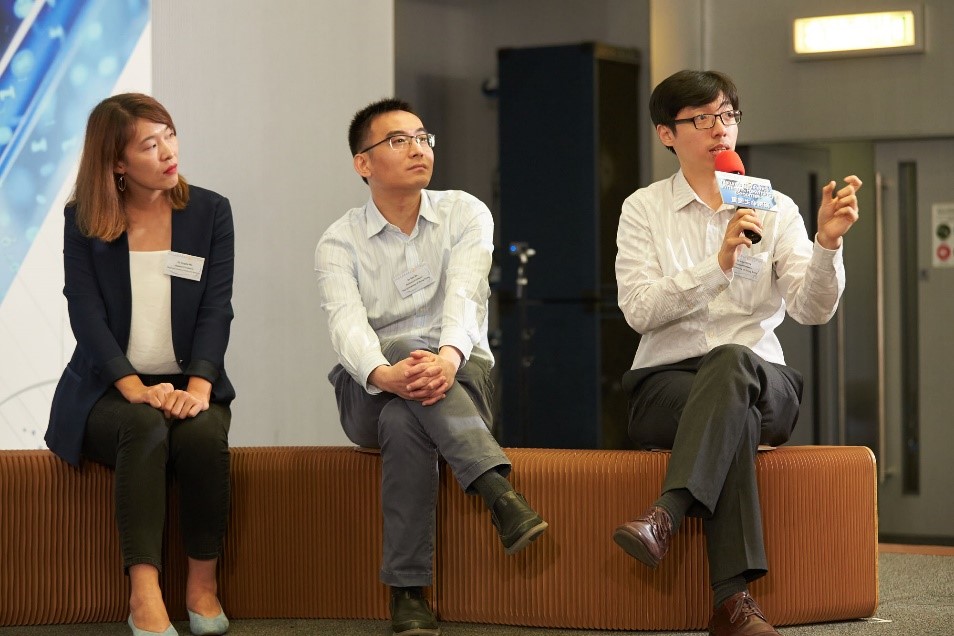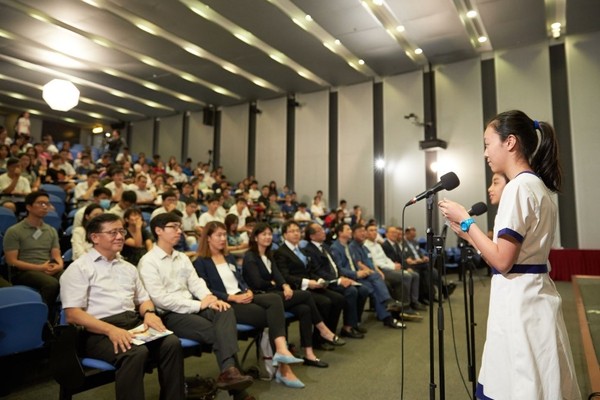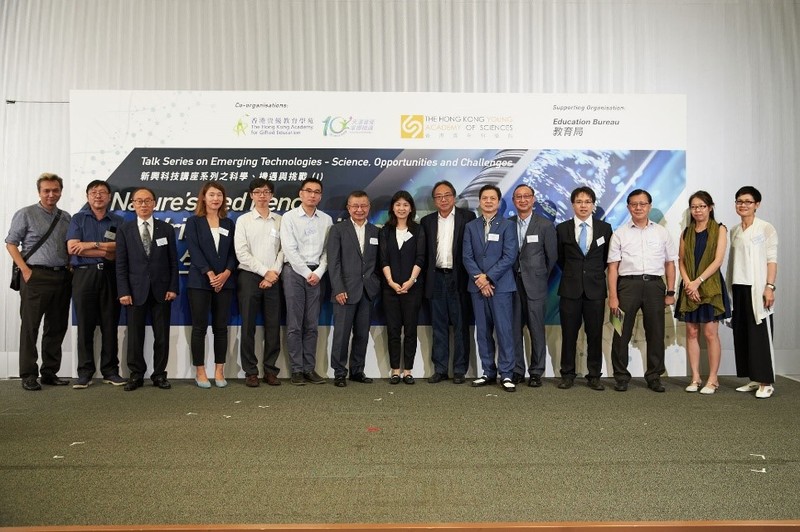Jul 12, 2019
Community Engagement: Talk Series on Emerging Technologies – Science, Opportunities and Challenges
Nature’s Red Pencil: Writing and Rewriting Genomes
Talk Series on Emerging Technologies – Science, Opportunities and Challenges

Dr. Bo Gao, Dr. Alan Wong and Dr. Stephanie Ma of the School of Biomedical Sciences of HKUMed delivered a talk about genome editing on 12 July 2019 at the Education Bureau Kowloon Tong Education Services Centre. The event was well attended with over 200 primary and secondary school students and teachers. The event is the first of a series of talks on emerging technologies that is co-organized by the Hong Kong Young Academy of Sciences (YASHK) and the Hong Kong Academy of Gifted Education (HKAGE) with support from the Education Bureau (EDB).
About "Talk Series on Emerging Technologies - Science, Opportunities and Challenges"
In the past few centuries, we have been witnessing the huge impacts of advancements in science and technology on the socioeconomic developments of our society. Assisted by the new technologies, the productivity and the living standards of people have been raised tremendously, but also with awareness and ramifications on the health and sustainability of our environment. We are currently at the dawn of a new industrial revolution and the impacts of technology on our society is even greater. Emerging technologies such as quantum engineering, genome editing, artificial intelligence and renewable energy will likely have a revolutionary impact on our way of living, our planet, and our way of understanding nature and even ourselves. YASHK and HKAGE are committed to inform our school teachers and students about the latest emerging technologies, to prepare our next generations for the opportunities and challenges ahead of us.
About "Nature’s Red Pencil: Writing and Rewriting Genomes"
An organism’s genome is the instruction manual that dictates a large part of the organism’s biological characteristics and functions. Genome editing technologies, which has recently experienced huge breakthroughs, are able to make precise additions, deletions, and alterations to the genome. With these technological advances has come an explosion of interest in the possible applications of genome editing, both in conducting fundamental research, and in promoting human health through the treatment or prevention of disease and disability. As with other medical advances, these applications come with their own set of benefits, risks, regulatory frameworks, ethical issues, and societal implications. We will discuss the basic principles and applications of gene editing, as well as the ethical issues surrounding this revolutionary technology.



